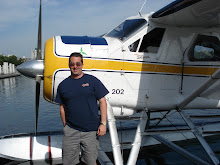
David Keith-Lucas was one of the sons of Keith Lucas, who invented the first aeronautical compass.
He was an apprentice and engineer with C.A. Parsons and Co. from 1933 to 1940, then moved to the aerodynamics office of Short Brothers, Rochester, famous for their flying boats, becoming their chief aerodynamist in 1944.
From 1845 to 1965 he was with Short Brothers and Harland Ltd in Belfast, holding the posts of chief designer, technical director and research director. His work included research on swept-wings which culminated in the Short SB-5 research aircraft. Other projects included the Short Belfast heavy freighter, the Short Skyvan and the SD-330 and SD-360 freight-commuter series.
The Short SB-4 Sherpa (a shoulder-wing cantilever monoplane powered by two Blackburn Turbomeca Palas turbojet engines) was a single-seater twin-jet aircraft built in the early 1950s to prove the possibilities of Keith-Lucas's aero-isoclinic wing. In 1951, he designed the Short SB-6 Seamew as a lightweight anti-submarine platform.
